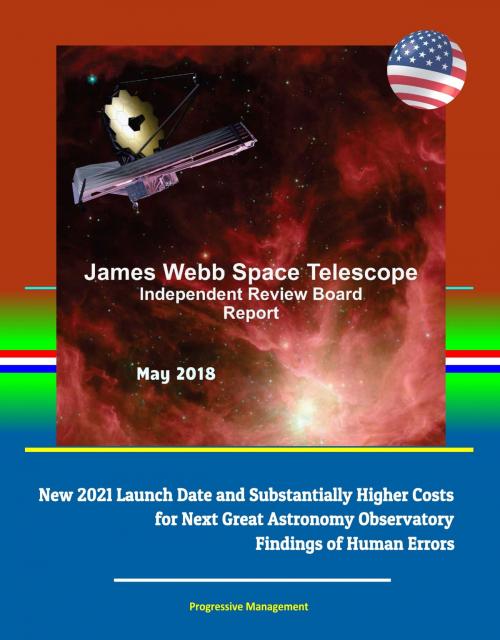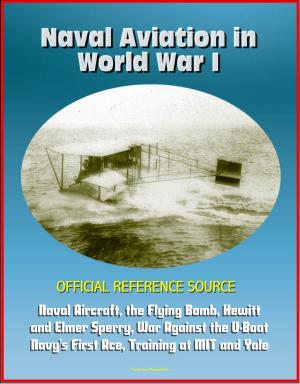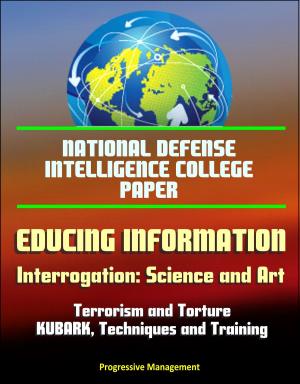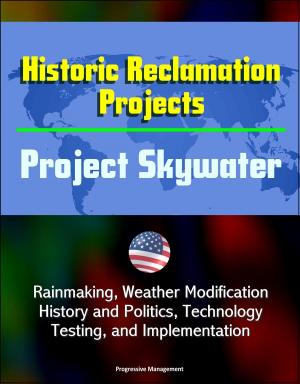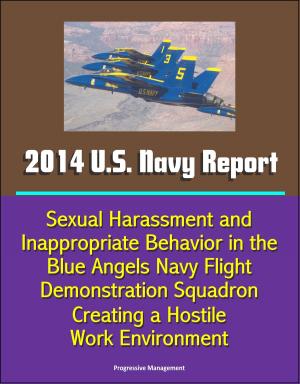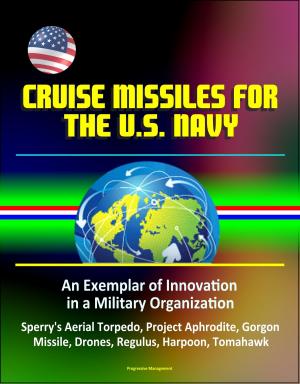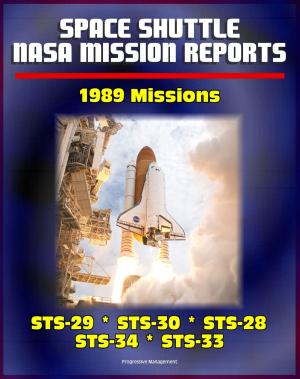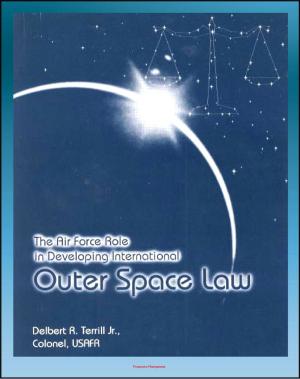James Webb Space Telescope Independent Review Board Report May 2018: New 2021 Launch Date and Substantially Higher Costs for Next Great Astronomy Observatory, Findings of Human Errors
Nonfiction, Science & Nature, Technology, Aeronautics & Astronautics, Science, Physics, Astronomy| Author: | Progressive Management | ISBN: | 9780463673942 |
| Publisher: | Progressive Management | Publication: | June 27, 2018 |
| Imprint: | Smashwords Edition | Language: | English |
| Author: | Progressive Management |
| ISBN: | 9780463673942 |
| Publisher: | Progressive Management |
| Publication: | June 27, 2018 |
| Imprint: | Smashwords Edition |
| Language: | English |
This report, released by NASA in late June 2018, provides the results of a vital independent review board report on the status of the troubled James Webb Space Telescope (JWST) project. The results were quite dramatic: the launch date for the telescope has been delayed to March 2021, and the cost of the project is now estimated to have risen nearly $1 billion. The report notes that delays and overruns can be attributed to a number of factors, including human mistakes during integration and testing, and embedded problems.
Summary and Conclusion - JWST is an observatory with incredible capability, awesome scientific potential and significant complexity, risk and first-time events. OTIS Integration and Test (l&T) is complete and has demonstrated the exceptional science capability of the system. Significant launch date delays and resulting cost caused by human errors, embedded problems, excessive optimism in l&T planning, lack of sunshield experience and system complexity have occurred. Small l&T problems can have a major impact upon schedule and cost. JWST inherent risk requires mission success be the highest priority in completing JWST development.
The Webb IRB believes that implementing all recommendations contained in this report will contribute to maximizing the probability of mission success. Eliminating the schedule and cost impact of human errors and embedded problems is critical to completing the successful development of JWST. The Webb IRB believes that JWST should continue based on its extraordinary scientific potential and critical role in maintaining U.S. leadership in astronomy and astrophysics. This report contains numerous recommendations all directed toward contributing to the maximization of JWST mission success. The Webb IRB strongly recommends that all the recommendations be implemented.
Webb's world-class science, from detecting light from the first stars and galaxies in the distant universe to probing the atmospheres in nearby exoplanets for possible signs of habitability will underpin many other astrophysics projects that will use its high-caliber capabilities to enhance their science return.
This report, released by NASA in late June 2018, provides the results of a vital independent review board report on the status of the troubled James Webb Space Telescope (JWST) project. The results were quite dramatic: the launch date for the telescope has been delayed to March 2021, and the cost of the project is now estimated to have risen nearly $1 billion. The report notes that delays and overruns can be attributed to a number of factors, including human mistakes during integration and testing, and embedded problems.
Summary and Conclusion - JWST is an observatory with incredible capability, awesome scientific potential and significant complexity, risk and first-time events. OTIS Integration and Test (l&T) is complete and has demonstrated the exceptional science capability of the system. Significant launch date delays and resulting cost caused by human errors, embedded problems, excessive optimism in l&T planning, lack of sunshield experience and system complexity have occurred. Small l&T problems can have a major impact upon schedule and cost. JWST inherent risk requires mission success be the highest priority in completing JWST development.
The Webb IRB believes that implementing all recommendations contained in this report will contribute to maximizing the probability of mission success. Eliminating the schedule and cost impact of human errors and embedded problems is critical to completing the successful development of JWST. The Webb IRB believes that JWST should continue based on its extraordinary scientific potential and critical role in maintaining U.S. leadership in astronomy and astrophysics. This report contains numerous recommendations all directed toward contributing to the maximization of JWST mission success. The Webb IRB strongly recommends that all the recommendations be implemented.
Webb's world-class science, from detecting light from the first stars and galaxies in the distant universe to probing the atmospheres in nearby exoplanets for possible signs of habitability will underpin many other astrophysics projects that will use its high-caliber capabilities to enhance their science return.
